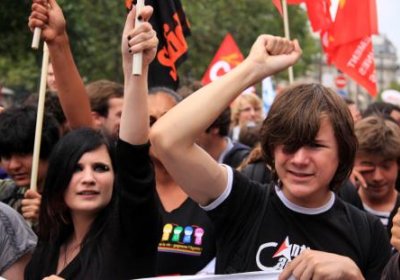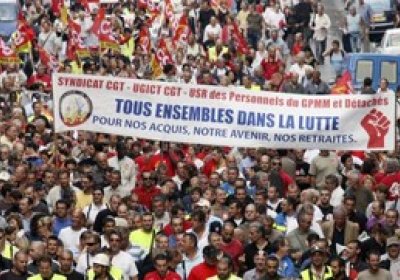Fearless Milk Crate Theatre Carriageworks, Sydney September 13-22 $35, $25 www.milkcratetheatre.com Milk Crate Theatre director Mirra Todd says his main goal is to get people thinking and talking about homelessness. “All theatre is about starting a conversation,” the wiry, animated Todd tells Green Left at Milk Crate’s rehearsal rooms in Sydney’s Kings Cross.
Austerity
The political situation in France is dominated by the mobilization against the proposed reform of the pension system. This reform is at the heart of Sarkozy’s austerity policy. Although it is presented as an obvious demographic necessity, it is meeting increasing opposition in public opinion.
Workers and students mobilised in their millions on October 12 in the fourth and largest mobilisation in the last month against laws that will reduce the pension entitlements of French workers.
More than three million people took part in strikes and protests across France on September 23. They were demanding the withdrawal of laws that will dramatically reduce the right of workers to access pensions. The protests, which had been called by a coalition of seven of France’s union confederations, showed that the passage of the Pension Bill through France’s lower house of parliament had done nothing to weaken opposition to the attack on pensions.
- Previous page
- Page 2
- Next page








